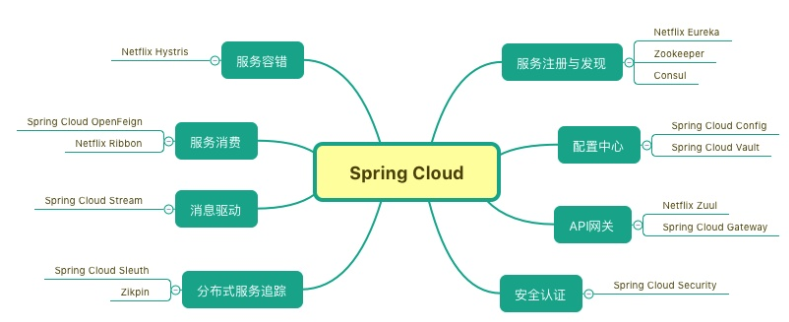1. 问题概述
在分析 Slow Query Log 时,记录下的SQL语句,明明会对一张表执行全表扫描,可为什么慢日志中的 Rows_sent 、Rows_examined 和表的真实记录数也是不一样,甚至相差N多倍。还有一个细节就是上述的SQL语句,执行多次,在慢日志中记录下多条记录,记录之间Rows_sent 、Rows_examined也差别明显。
这是什么原因导致的呢?
2.举例说明
假如,有一张 product_stock的表,其全表的数据量为80201010,size 约为56G。
对全表进行count(*),在慢日志留下的记录如下
# Time:2019-06-06T13:51:22.111111+08:00 # User@Host hehe[hehe] @ localhost [] Id: 868686 # Query_time : 39.112233 Lock_time: 0.000333 Rows_sent 1 Rows_examined: 80201010 SET timestamp .....; select count(*) from product_stock;
但是系统应用触发的慢SQL记录如下
# Time:2019-06-05T14:22:22.111222+08:00 # User@Host uwser[uwser] @ [XX.XX.XX.XX] Id: 667766 # Query_time : 520.662233 Lock_time: 0.000296 Rows_sent 820111 Rows_examined: 820111 SET timestamp .....; select * from product_stock where 1=1;
说明: where 1=1 ,是系统框架自动补全的,目的是防止SQL语句没有where 条件,这个是无碍的。
确信 整个语句就是全表扫描,问题是为什么它记录下来的扫描行数只是表数据的一小部分?也没有limit限制啊?
3.官方文档对慢日志的定义
The slow query log consists of SQL statements that take more than long_query_time seconds to execute and require at least min_examined_row_limit rows to be examined. The slow query log can be used to find queries that take a long time to execute and are therefore candidates for optimization.
The time to acquire the initial locks is not counted as execution time. mysqld writes a statement to the slow query log after it has been executed and after all locks have been released, so log order might differ from execution order.
• Query_time: duration
The statement execution time in seconds.
• Lock_time: duration
The time to acquire locks in seconds.
• Rows_sent: N
The number of rows sent to the client.
• Rows_examined:
The number of rows examined by the server layer (not counting any processing internal to storage engines).
这些知识对描述的疑惑没有直接帮助。还需我们继续探寻。
4. 猜想
慢日志记录的行数只是整个表的一部分,那会不会是还没执行完?会不会还在执行中被取消了?才导致只是scan其中的部分,返回的行数只是已scan的部分?
例如,如果条件允许的话,整个scan过程需要10分钟,但是执行到1分钟时,因为连接参数设置或则客户端主动取消,才进行了1/10,但是这个SQL语句还是被慢日志记录下来了,虽然它没有执行完整。
5.猜想验证
为了使验证过程简单直接,直接通过本地mysql客户端连接吧。
5.1 执行过程中,直接cancel
当然,cancel的时候,已执行的时间一定要大于自定义的慢查询时间阈值。
截取其中的一条慢日志
# Time:2019-06-06T18:36:18.554477+08:00 # User@Host uwser[uwser] @ [XX.XX.XX.XX] Id: 842366 # Query_time : 20.662233 Lock_time: 0.000296 Rows_sent 3691064 Rows_examined: 3691064 SET timestamp .....; select * from product_stock
cancal取消后,仍然会记录下慢日志,并且只返回已经扫描的数据(80201010中的3691064), 此种情况,验证了猜想是正确的。
5.2 执行中被Kill
当然,被Kill的时候(新打开一个connection去kill即可),已执行的时间一定要大于自定义的慢查询时间阈值。
# Time:2019-06-06T19:12:10.553322+08:00 # User@Host uwser[uwser] @ [XX.XX.XX.XX] Id: 842366 # Query_time : 50.662233 Lock_time: 0.000456 Rows_sent 10121006 Rows_examined: 10121006 SET timestamp .....; select * from product_stock
被KILL后,仍然会记录下慢日志,并且只返回已经扫描的数据(80201010中的10121006), 此种情况,验证了猜想是正确的。
6.结论
1) 被Cancel 或者 被KILL后,SQL语句如果符合慢日志时间,仍然会被记录下来,虽然它没有被完整下执行完;
2)此时的查询时间、扫描行数、返回行数,是截至到被Cancel 或者 被KILL时的 已执行时间、已Rows_sent 行数和 已Rows_examined行数;
3)Query_time、Rows_sent 行数、Rows_examined,可能不是SQL语句已完整执行的结果统计,只是整个SQL过程部分进度的统计,即截至到 被Cancel 或者 被KILL节点的统计;
4)上述情况发生时,执行多次,在慢日志中记录下多条记录,记录之间不同数据不同 是因为SQL受获取执行锁、DB执行时压力情况等因素的不同,导致退出时执行进度不同,各记录间 执行时间、 Rows_sent 、Rows_examined不同也是可以理解的。
来源链接:https://www.cnblogs.com/xuliuzai/p/18665248
如有侵犯您的版权,请及时联系3500663466#qq.com(#换@),我们将第一时间删除本站数据。

















暂无评论内容